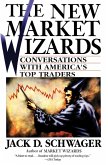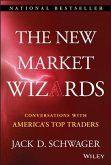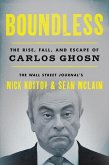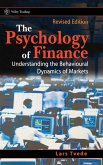In the last decades many financial crises have emerged, like the stock crash of 1987, the Asian crisis in 1997 and the global financial crisis that started in 2008. Although those crises occurred for different reasons, they all proved financial markets to be inefficient. Not all traders think rationally. Behavioural patterns cause irrationality amongst traders. Even after decades of research in this field, financial crises like the latest one in 2008 still develop out of a combination of different behavioural patterns like herding. As a consequence those patterns deserve an in-depth analysis that is conducted by the author in this work.
In order to find out to what extent behavioural finance influences the decision making process of traders and investors the seven most relevant behavioural patterns have been identified and analysed through qualitative research in form of primary research. The informal interview with the sophisticated trader Thomas Vittner serves as empirical evidence for the significance of the determined behavioural patterns. To find out, whether public investors and traders showed a herding behaviour towards analysts stock recommendations in the financial crisis and its recovery, quantitative research has been made by conducting an experiment. Stocks performances in relation to analysts recommendations were analysed and evaluated.
The author s selected behavioural patterns are influencing traders and investors decision-making processes to a large extent as their majority trades irrationally. The herding behaviour to follow analysts stock recommendations only holds partially in the crisis and in the recovery phase. The results show that whereas the majority of analysts recommendations matched with market trends before the crisis, only about half matched during the crisis and its recovery. People tended to follow the general signals of the market, rather than to recommendations given by analysts.
Hinweis: Dieser Artikel kann nur an eine deutsche Lieferadresse ausgeliefert werden.
In order to find out to what extent behavioural finance influences the decision making process of traders and investors the seven most relevant behavioural patterns have been identified and analysed through qualitative research in form of primary research. The informal interview with the sophisticated trader Thomas Vittner serves as empirical evidence for the significance of the determined behavioural patterns. To find out, whether public investors and traders showed a herding behaviour towards analysts stock recommendations in the financial crisis and its recovery, quantitative research has been made by conducting an experiment. Stocks performances in relation to analysts recommendations were analysed and evaluated.
The author s selected behavioural patterns are influencing traders and investors decision-making processes to a large extent as their majority trades irrationally. The herding behaviour to follow analysts stock recommendations only holds partially in the crisis and in the recovery phase. The results show that whereas the majority of analysts recommendations matched with market trends before the crisis, only about half matched during the crisis and its recovery. People tended to follow the general signals of the market, rather than to recommendations given by analysts.
Hinweis: Dieser Artikel kann nur an eine deutsche Lieferadresse ausgeliefert werden.








